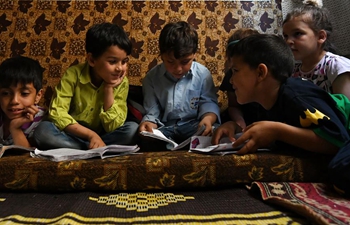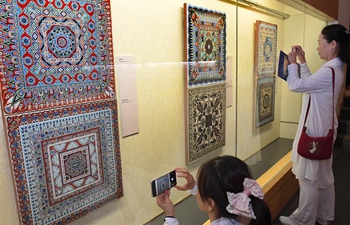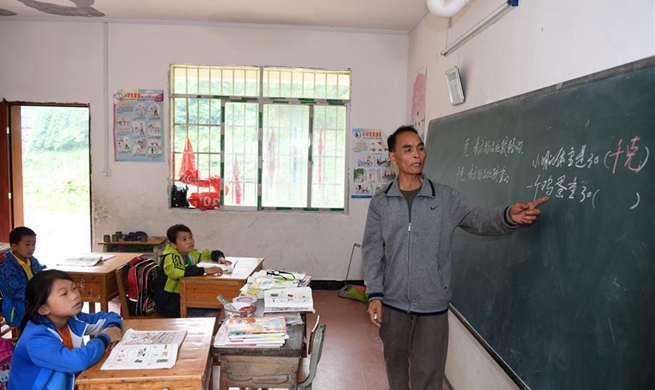by Federico Grandesso
CANNES, France, May 29 (Xinhua) -- "The ghetto situation produces its own humour because people are living in a state of stasis, they start creating their own resistance," said a Palestinian movie director.
"They want to create a sort of illusionary space in which they can reside and somehow instigate some form of life," said Elia Suleiman, 59, whose movie It Must Be Heaven won a special mention award at the 72nd edition of the Cannes Film Festival in France earlier this month, in a recent interview with Xinhua.
"I lived in a ghetto town, a very desperate place, very crowded with no possibility of expansion, where its citizens were looked on more and more as non-citizens. There is despair and people are living in a stasis. They don't know how to make a better life with all the limitations they have," he said.
The film, in which Suleiman plays himself, talks about the protagonist's travel from his Palestinian home to Paris and then to New York in hope of seeking an alternative homeland. However, everywhere he looks, often in eerily deserted neighborhoods, he finds something that reminds him of his home.
"Happiness" is a central concept in the film, Suleiman said. "It is a concept, not a place. When you read the title, you immediately understand that there is no such a place. It is just a pretext of the character doing his trips and not finding his alternative homeland."
"My way of working is going into different steps. When I had the idea to start shooting from one place to another, the basic need was that you would have lived in these places, not as a 'tourist film-maker,'" he said.
"After that, each segment of the film became a film in itself and the challenge was that they were each becoming a short film with little sense of begining and end, so they were more difficult to structure," he added.
"Everyone is not inspired only by one type of culture. It also comes from philosophy, cinema and different readings ... Living experiences are also important," Suleiman said.
"At the beginning I didn't understand what cinema was. I had some confidence in my oral story-telling. Then I started watching films intensely in order to learn and it took me quite a while to find the cinema that I'm expressing today," he said. "My goal was to deliver a different narrative and another way to tell a Palestine story."

















